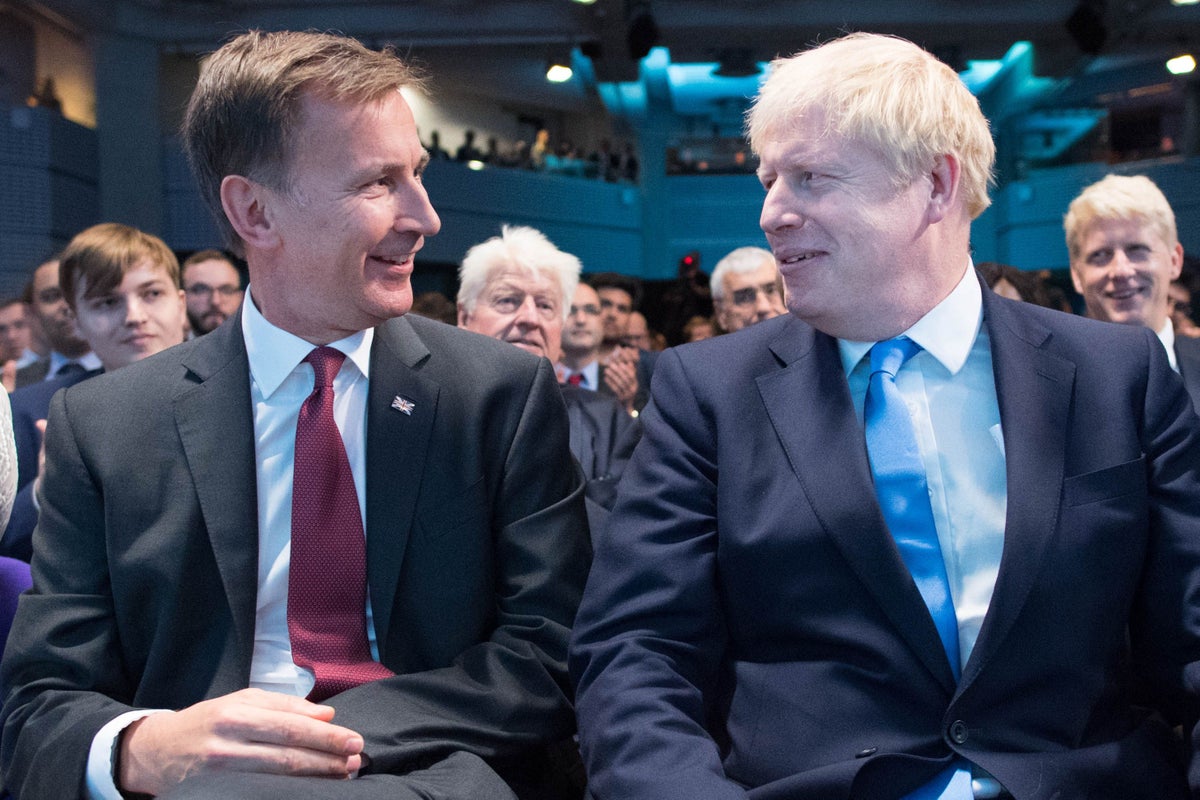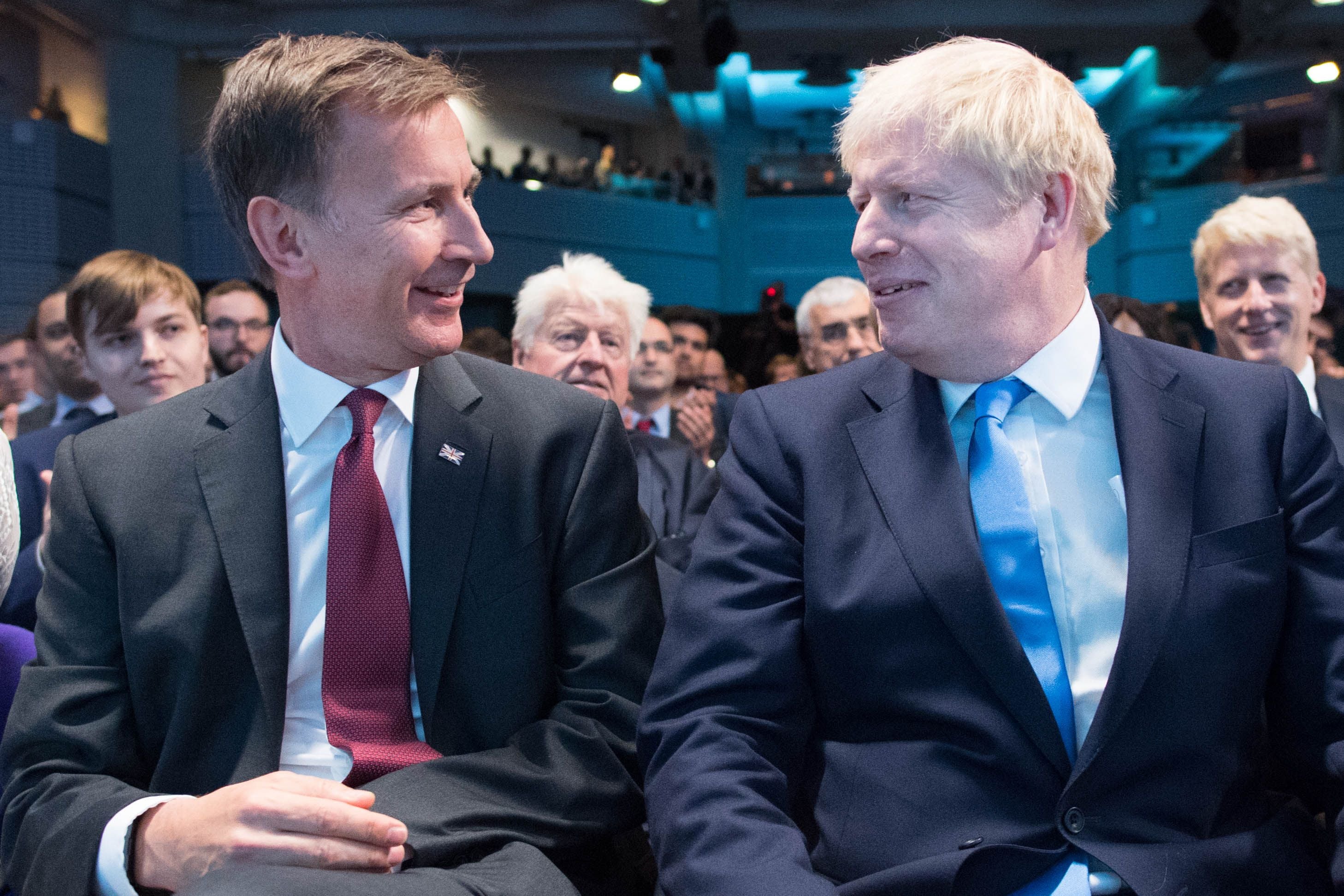
Boris Johnson is being encouraged by allies to ditch Rishi Sunak and elevate Jeremy Hunt to chancellor in an effort to shore up his fragile leadership and prevent a Tory civil war.
The prime minister’s future in No 10 was left hanging in the balance after a vote of confidence on Monday night that saw 148 Conservative MPs vote against him.
Now Mr Johnson’s allies are eyeing up what they see as a “dream team” of him and Jeremy Hunt, as reported by The Daily Telegraph.
The move would have the dual advantage of bringing in the prime minister’s most competitive leadership rival and ensuring he was affixed to the government’s agenda and priorities, Johnson loyalists believe.
However there’s no guarantee Mr Hunt, a staunch critic of the prime minister, would accept the job and demoting Mr Sunak could be seen as disloyal after he stood by him during his moment of leadership crisis.
On Tuesday at cabinet Mr Johnson tried to reassert some form of control and thanked colleagues for their efforts to support him during the confidence vote process.

In an attempt to reboot his floundering government he promised to cut taxes and also urged colleagues to trim costs and drive reforms in Whitehall.
Mr Johnson said the “fundamental Conservative instinct” was to allow people to decide how to spend their money, urging cabinet ministers to cut costs.
He said “delivering tax cuts” would help deliver “considerable growth in employment and economic progress”.
Mr Johnson said: “Over the course of the next few weeks, I’m going to ask everybody to come forward with ways in which we cut costs, drive reform, and make sure that we understand that in the end it is people who have the best feel for how to spend their own money rather than the government or the state. And that is our fundamental, Conservative instinct.”
Mr Sunak has written a piece in The Daily Telegraph outlining tax cuts for businesses in autumn, echoing the prime minister’s pledges at cabinet on Tuesday. The specifics of the proposals are not outlined.
Despite his attempt to rally his government, Tory rebels are reportedly seeking a number of “vote strikes” to paralyse parliament, as reported by The Guardian.
The first major confrontation is expected to be over a bill to override sections of the Northern Ireland procotol which will reportedly be published in the coming weeks.
The prime minister also faces other imminent challenges apart from legislative difficulties in the House of Commons.
He has two difficult by-elections on 23 June in Wakefield, West Yorkshire, and Tiverton, and Honiton in Devon.
Deputy prime minister Dominic Raab sought to play down the impact of potential losses in the two Tory-held seats, claiming “governments of the day often lose by-elections to go on to win them at a general election”.
Lord Hague, writing in The Times, said he would have regarded a situation where more than a third of MPs voted against his leadership as “untenable”.
“If, with all the power of the party leadership, all the years of acquaintance with MPs, all the knowledge they have of your abilities and plans, you still cannot crush a vote of no confidence by a commanding margin, then not only is the writing on the wall but it is chiselled in stone and will not wash away,” he said.
Tobias Ellwood, chairman of the Commons Defence Committee and another Tory MP who has called for Mr Johnson to quit, suggested the prime minister would only survive for “a matter of months”.







